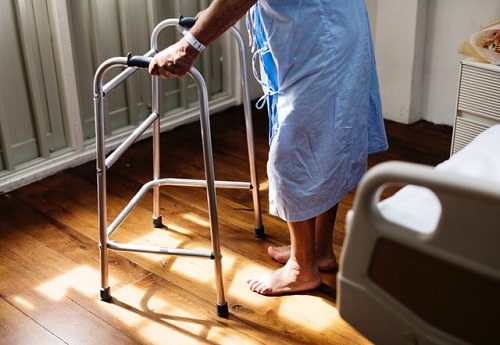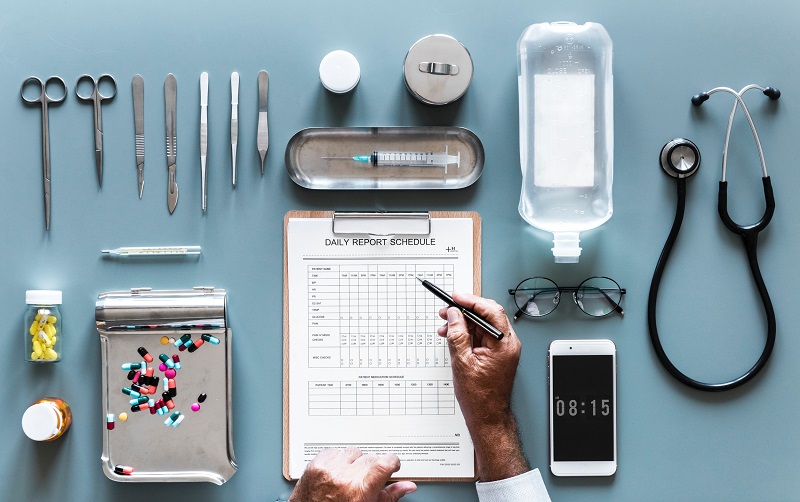Follow these 7 steps to prepare for surgery
Dealing with surgery is a fact of life. Most people go through at least one during their lifetime, be it dental surgery, appendectomies, cardiac surgery or transplants. Supposing it isn’t an emergency intervention, but a planned one, you should take your time to prepare yourself both mentally and physically. This step is important and a key factor in determining the speediness of the recovery, how to handle the pain and how quickly you’ll be able to return to your old life.
7 steps to prepare for surgery
We have put together a checklist you need to go through in order to make the entire process as easier and hassle free as possible. Surgery isn’t a walk in the park, but following these steps can make you feel in control and more confident of the outcome.
 1. Learn everything about the surgery – Asking your doctor all the questions regarding your intervention, such as dietary plan, risks, healing time and a detailed explanation of the steps involved and staff that will participate, will give you a clean perspective on what to expect and will make you feel less anxious.
1. Learn everything about the surgery – Asking your doctor all the questions regarding your intervention, such as dietary plan, risks, healing time and a detailed explanation of the steps involved and staff that will participate, will give you a clean perspective on what to expect and will make you feel less anxious.
Try not to get your information from the internet or other shady sources. Every person’s experience is different and you could be influenced in a negative way. The safest source of information is your doctor.
2. Follow a pre-surgery diet – Surgeries usually require dietary restrictions a few days before. Try to eat as healthy as possible to ensure nutrients, enhance your immune system and shorten the recovery time. You should avoid foods that increase the inflammatory response.
There are a couple of general rules you need to apply to your pre-surgery diet, a few weeks in advance:
- Drink plenty of fluids that are easily digested by your body: water, black coffee (no added milk or sugar), lemon/lime juice, apple juice. Avoid cola, juice with pulp, milk, dairy beverages. These require lots of time to be processed by your body. In most cases, your anesthesiologist will recommend not drinking anything 8-12h before surgery, not even water.
- Avoid foods with high-fiber content: meals that contain whole-wheat pasta, whole-grain bread, beans, oatmeal take longer to be digested. Your bowel needs to be clear before surgery, so your doctor will recommend a low-fiber diet.
- Avoid medication and supplements that could interfere with the surgery: aspirin, vitamin E, vitamin C can increase blood flow.
- Restrict foods that increase inflammatory response: sugar, white flour, refined carbohydrates, saturated fats, pastries, alcohol. They make your body susceptible to tissue swelling from bacteria and toxins, during the surgery or the hospital stay.
Each type of surgery may have additional restrictions. This is why you have to consult with your doctor and anesthesiologist at least a week before the intervention.
3. Strengthen your body – Being fit, flexible and strong is generally a good thing. You might consider getting in shape a few weeks before (if you have the notice of your surgery), which will help your body heal faster and you get around easier while in recovery.

4. Learn what to expect after surgery – You need to be aware of several aspects you’ll be facing after the surgery: how long after it will you be able to go home, how much pain will you be in, what pain-medication will the doctor recommend, will you need a rehabilitation program or somebody to stay with you. Make arrangements for someone to pick you up from the hospital and drive you home.

5. Find out the care you’ll need after surgery – The more complicated your intervention will be, the more days you’ll need to stay submitted. Information such as what machines you’ll be connected to when you wake up, what intravenous treatments you’ll receive, what assistants you can call on when you need something, what are the visiting hours, or the food you’ll receive, will help everything go smoothly.
6. Make arrangements in your home – When you’ll get home from the hospital, it’s likely you won’t be able to put on new sheets, arrange your pillows, or start cooking a light meal. Prepare everything beforehand and arrange with someone to cook for you or bring you some food. Make yourself a cozy spot, stack up on relaxing music, some movies, books and get a lot of rest.
7. Pack your bag – If you’re going to be submitted in the hospital for a few days, you will want to bring some items. A pajama, robe, slippers, your toiletries, your telephone and charger, books, even your favorite pillow and blanket. Pack anything that will make your stay more comfortable.
Nobody goes to surgery with a full smile on their face. As simple as it might be, you will likely feel a bit scared, intimidated and confused. Preparing for the intervention will reduce a big part of these feelings, especially if you know you are in the hands of an experienced doctor and his/her staff. The most important thing to anticipate is having supportive people around you, family and friends that will be with you throughout the entire process.





